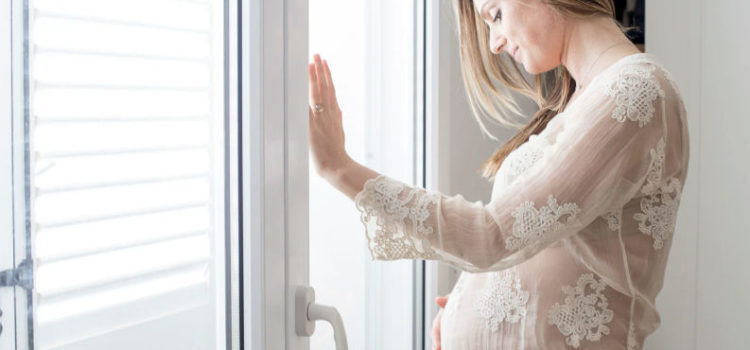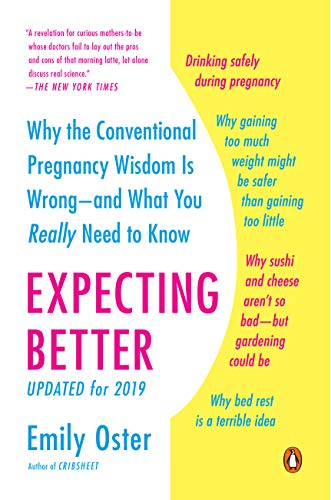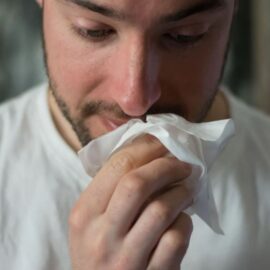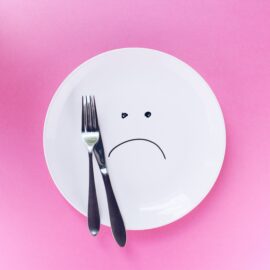

This article is an excerpt from the Shortform summary of "Expecting Better" by Emily Oster. Shortform has the world's best summaries of books you should be reading.
Like this article? Sign up for a free trial here .
Just as common as prescriptions on diet during pregnancy are precautions about activities like gardening and hot tubs. Do you really need to avoid cats? How about avoiding having sex?
Here’s a run-down of common activities commonly barred during pregnancy.
Cat Litter and Gardening
Cats present a risk for toxoplasmosis only during the cat’s first exposure. Therefore, older cats that have already had it, cats don’t eat raw meat, and cats that don’t hunt outside are less likely to have toxoplasmosis. If the cat has kittens when you’re pregnant, risk increases.
There is a strong association between working with soil and toxoplasmosis. So if you garden, wear gloves and maybe a mask.
Don’t Worry: Hair Dye
The misconception around hair dye causing birth defects likely began with experiments that dosed animals at unnaturally high amounts. In humans, a study of hairdressers found a small but significant increase in low-birth-weight babies, but this was not replicated and may be due to other things (like standing a lot).
Hair dye is likely safe, particularly after the first trimester.
Avoid: High Temperatures – Hot Tubs, Baths, Hot Yoga
Raising your body temperature above 101 degrees in the first trimester increases risk of gastroschisis and anencephaly, a neural tube defect.
Hot tubs and Bikram Yoga are around 105 degrees, as are very hot days, so avoid these in the first trimester. After the neural tube forms in first trimester, it may be safer.
A Spanish study did find that very hot days seemed to induce labor earlier (by about 5 days). So if you’re near your due date, consider staying inside on hot days.
Don’t Worry: Sex
The baby is protected in a giant cushiony fluid sac, and sex isn’t going to hurt it. Go nuts.
The cervix is more sensitive during pregnancy, so hitting it may induce some bleeding, which is normal.
Don’t Worry Much: Radiation and Airplanes
The recommended limit on radiation exposure for the duration of pregnancy is 1 mSv (millisievert). This is conservative, with experts suggesting there are no definitive data showing fetal harm at doses below 20 mSv. Oster does note that exposure to twice this limit might increase the risk of the child having a fatal cancer by 1 in 5,000.
How does this translate to flying? A single 4-hour flight would deliver at most 0.02 mSv, or 2% of the limit. And flight attendants receive around 1.5 mSv per year, so each individual flight is not a big deal.
How about airport security? A single screening has a maximum of 0.25 μSv, or 0.025% of the limit. In other words, you could get a screening every single day and that would represent 9% of your annual conservative limit.
In other words, unless you’re a flight attendant, you probably won’t reach the conservative limit. But you can always opt for the pat-down instead of the X-ray.
(Shortform note: to put these radiation doses into perspective, here are examples of a range of doses:
- 0.25μSv: maximum limit on dose from a single airport security screening
- 5-10μSv: one set of dental X-rays
- 0.3-0.5mSv: dosage per 100 flight hours for air crews
- 0.5mSv: one two-view mammogram
- 1mSv: the dose limit for typical members of the public per year
- 1.5 mSv: flight attendants receive this amount per year
- 10-30 mSv: a single full-body CT scan
- 4-5 Sv: dose, if administered in short duration, that would kill a human with 50% risk in 30 days
- 64 Sv: nonfatal dose given to Albert Stevens over 20 years in a 1945 plutonium injection experiment
)
———End of Preview———

Like what you just read? Read the rest of the world's best summary of "Expecting Better" at Shortform . Learn the book's critical concepts in 20 minutes or less .
Here's what you'll find in our full Expecting Better summary :
- Why much parenting advice you hear is confusing or nonsense
- The most reliable way to conceive successfully
- How much alcohol research shows you can drink safely while pregnant (it's more than zero)
- The best foods to eat, and what foods you really should avoid






